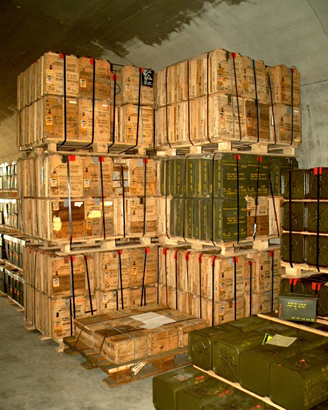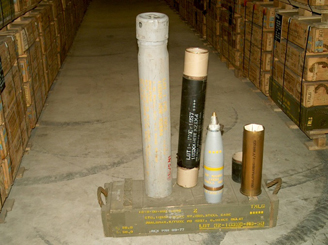Meet Tim De Zitter, a Belgian expert working on multinational procurement of munitions
Tim De Zitter is a system manager at the Belgian Ministry of Defence. He works with experts from other NATO Allies to procure land combat missile and rocket systems for use on the battlefield.

“The project ensures NATO Allies can share munitions, and purchase and store them together and thereby lower overall costs by making use of economies of scale,” he explains. “It also allows Allied forces to operate even more seamlessly together.”
Founded by Belgium, and led by France since January 2020, this multinational NATO initiative is known as the Land Battle Decisive Munitions (LBDM) project. Currently 20 Allies participate – Belgium, Croatia, the Czech Republic, Denmark, Estonia, France, Germany, Italy, Latvia, Lithuania, Montenegro, the Netherlands, North Macedonia, Norway, Poland, Portugal, Slovakia, Slovenia, Spain and the United Kingdom – as well as partner countries Austria, Finland and Sweden.

Munition stored in a warehouse
Multinational projects to boost capabilities
To carry out its missions and tasks, NATO needs Allies to invest in interoperable, cutting-edge and cost-effective equipment. To that end, NATO supports Allies in identifying and developing multinational cooperative projects to deliver the key defence capabilities needed.
The LBDM initiative is one of many examples of initiatives to promote more effective and rapid multinational cooperation.
Other projects cover key areas such as training structures for pilots in support of Special Operations Forces, acquisition and operation of multinational airplane fleets for maritime missions, cargo transport and air-to-air refuelling, or the introduction of maritime unmanned systems.
“The NATO Land Battle Decisive Munitions project started in the summer of 2018 when NATO Defence Ministers signed a Memorandum of Understanding. And it took only half a year before the first shipment of multinationally acquired anti-tank munitions came forth out of this initiative,” remarks Tim.
Among other options, the munitions can be procured through the NATO Support and Procurement Agency (NSPA) on behalf of Allies and partners involved in the project. Located in Luxembourg, NSPA is NATO’s main services provider when it comes to procurement of equipment, delivering a broad spectrum of integrated capabilities for the Alliance, its member countries and partners. Currently, the Agency is also playing an important role in responding to the ongoing COVID-19 pandemic, by assisting NATO Allies and partners with key relief acquisition and transport.
Ensuring the desired effect on the ground
Tim is a former platoon commander, who was also deployed to Afghanistan. He likes his current job a lot, in particular the diversity of his activities. “Not a single day is the same. One day you are talking with the soldiers in the squad, the next day you are doing a project on simulation, the week after you are abroad for a conference with representatives from different nations.”

Artillery round
His main motivation though is to ensure customer satisfaction, which in this instance means making sure the soldiers in the field have access to the exact capabilities they need. “Everything we do has the objective to allow them to do their job with the best means and under the best circumstances possible.”
Land battle decisive munitions vary in type, size and weight.
“From grenades, to tank and artillery shells to surface-to-surface missiles, what is expected on the battlefield is the decisive effect: to neutralise a potential adversary’s capability, to create a smoke screen in order to protect your own soldiers and capabilities or for example to light up the environment during an operation at night,” says Tim.
